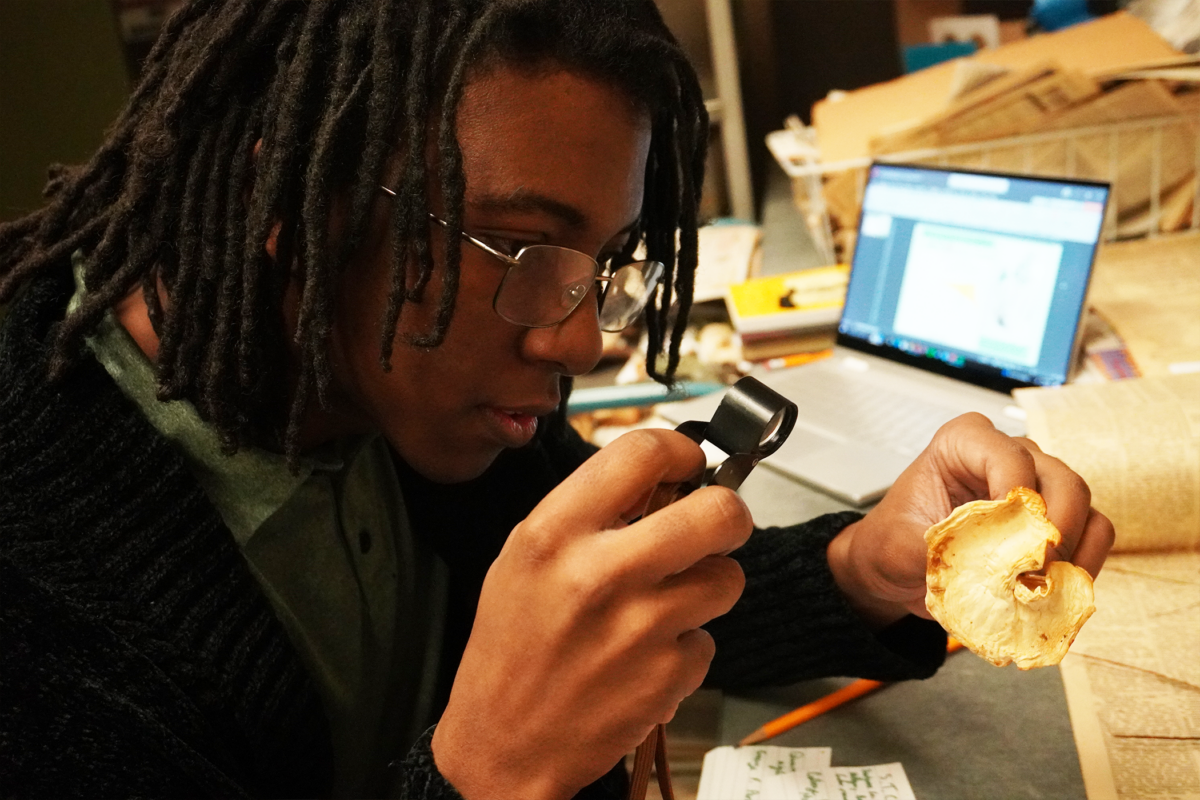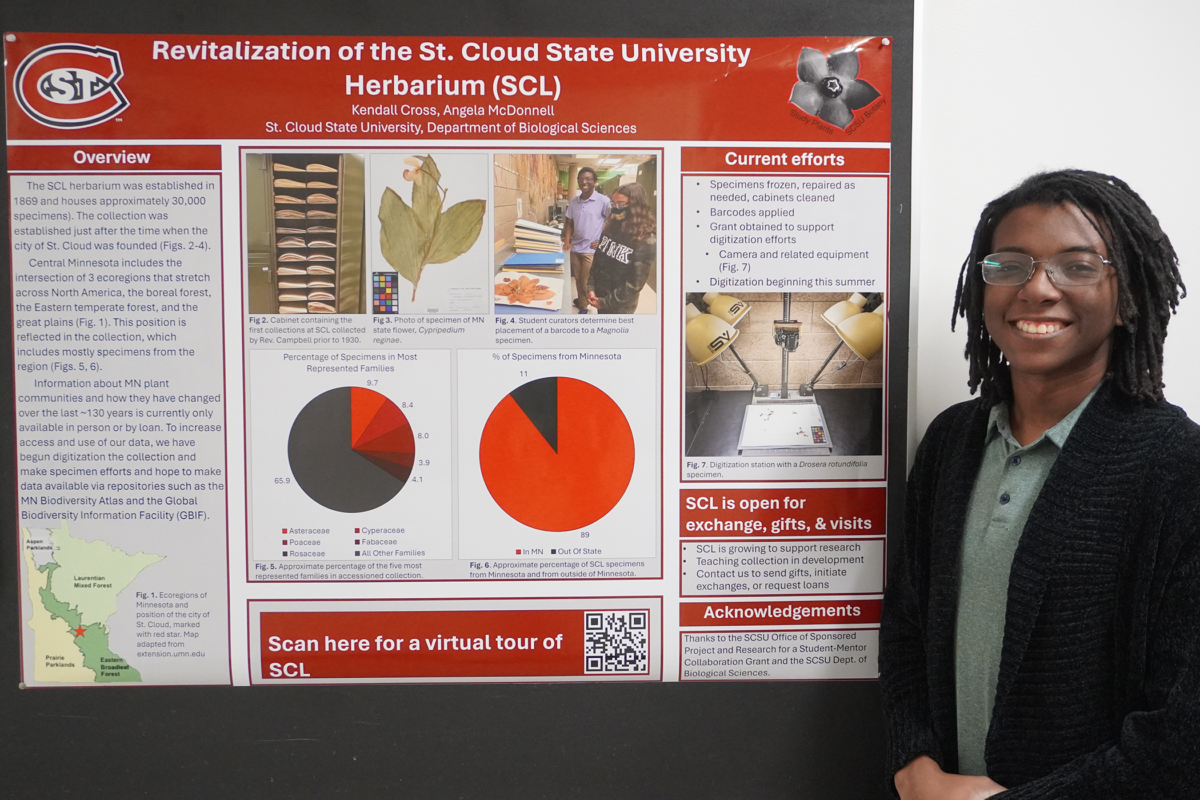
St. Cloud State University senior Kendall Cross is one of many students conducting invaluable undergraduate research at SCSU, and his work is a key part of setting up success for future cataloging of the region’s various plant specimens.
Alongside Dr. Angela McDonnell, assistant professor of biology, Cross has been working for the past two years to digitize approximately 30,000 plant specimens. The SCSU Herbarium has a collection that dates back over 150 years to 1862, with more plant specimen being added every month.
Participation in undergraduate research has a huge impact on students like Cross. Providing these opportunities is one way St. Cloud State prepares students for success after college, in their careers or graduate school.
Cross says that he especially enjoys the history of the collection and feeling a connection to past contributors.
“It is just so amazing to me that every specimen has a name on it of the person who collected it. A person saw this plant and thought, ‘I should preserve this for the future,'” Cross said. “Now I get to see all these names … and in a way, this is a part of their legacy.
“Some names show up a couple of times and some show up a couple thousand times, but each one of them was a person, a student, a professor, a researcher or someone who did it just because they wanted too,” he added. “Now I can see a snippet of their lives, of where they’ve been or what might have been important to them.”

The collection demonstrates how plant growth has changed over time and highlights the effects of climate change on the biomes of Minnesota, how invasive species have spread and show a record of endangered/extinct species. It also is key to recording plant growth in central Minnesota.
“It is an important component of open science to digitize specimens and make the troves of data held publicly available,” McDonnell said. “Our herbarium holds a number of specimens from this area that are not available anywhere else, including specimens from when this region was first settled. When we make our data and specimen images publicly available, people from all over the world can access it, and there really is no telling what kind of scientific advances might be made.”
Cross is one of many incredible students presenting at the College of Science and Engineering student research colloquium on April 15. Learn more about the Herbarium and other student research projects at a poster session open to the public in the Miller Center Innovation Hub.
If you are a student interested in presenting your own research, the Intent to Present is open until February 16 at 11:30 p.m.
